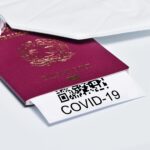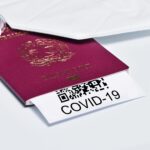A Compassionate Alternative: The Super Visa for Parents and Grandparents
For many Canadian citizens and permanent residents, the desire to have parents and grandparents close is a profound emotional cornerstone of their lives. The journey of family reunification, however, can often feel complex and lengthy. While the Parents and Grandparents Program (PGP) offers a path to permanent residency, its high demand and lottery-based intake system mean that many families face uncertain and extended waiting periods. Fortunately, Immigration, Refugees and Citizenship Canada (IRCC) provides a powerful and flexible alternative: the Super Visa. This specialized temporary resident visa is meticulously designed to bridge the distance, allowing parents and grandparents to enjoy extended stays in Canada with their families. It stands not as a replacement for the PGP, but as a distinct and highly valuable pathway that prioritizes time spent together, offering a reliable solution for families eager to reunite without the pressures and unpredictability of the permanent residency process. The Super Visa embodies a practical and compassionate approach to immigration policy, acknowledging the deep importance of intergenerational family bonds.
Super Visa vs. The Parents and Grandparents Program (PGP): A Crucial Distinction
Understanding the fundamental differences between the Super Visa and the Parents and Grandparents Program is critical for families to make an informed decision that aligns with their goals. The PGP is a permanent immigration stream. If an application is successful, the parent or grandparent becomes a permanent resident of Canada, with all the associated rights and responsibilities, including access to provincial healthcare. However, its major drawback is its structure. The PGP operates on an invitation-only basis, typically through a lottery system that selects from a large pool of interested sponsors. This means there is no guarantee of even being able to apply in a given year, and processing times for those invited can still be extensive. In stark contrast, the Super Visa is a temporary resident visa, but one with extraordinary benefits. It is a multi-entry visa valid for up to 10 years, and a recent, welcome change allows holders to stay in Canada for up to five consecutive years per entry. This provides the long-term, stable presence many families desire. Unlike the PGP, the Super Visa program is always open to new applications, providing a predictable and accessible option. The choice between the two often comes down to immediacy and objective: if the primary goal is to have parents and grandparents in Canada for long, uninterrupted periods as soon as possible, the Super Visa is often the superior strategic choice.
Navigating the Core Eligibility Requirements for the Super Visa
Securing a Super Visa hinges on meeting a clear set of criteria designed to ensure the visiting parent or grandparent will be well-supported and cared for during their stay in Canada. The Canadian sponsor and the applicant must work together to provide a comprehensive application package. While every case is unique, the foundational requirements are consistent and must be meticulously addressed. The sponsor, who must be a Canadian citizen or permanent resident, plays a pivotal role in demonstrating the financial capacity to host their family member. This is arguably the most scrutinized aspect of the application. Beyond financial support, the applicant must also prove their ties to their home country and their intent to leave Canada at the end of their authorized stay. Successfully navigating these requirements is the key to a positive outcome.
Key Super Visa Eligibility Criteria:
- Relationship Proof: The applicant must be the parent or grandparent of a Canadian citizen or a permanent resident of Canada. Official documents such as birth certificates are required to establish this relationship.
- Letter of Invitation: The child or grandchild in Canada must provide a formal, signed letter of invitation. This letter should promise financial support for the duration of the visit, list the people in the household, and include a copy of their Canadian citizenship or permanent resident document.
- Financial Support (LICO): The Canadian sponsor must prove their income meets or exceeds the Low Income Cut-Off (LICO) threshold for their family size. This is a minimum income requirement set annually by the Canadian government. Proof of income is typically demonstrated through documents like a Notice of Assessment (NOA) from the Canada Revenue Agency.
- Canadian Medical Insurance: The applicant must have proof of private medical insurance from a Canadian insurance company. This policy must be valid for at least one year from the date of entry, provide a minimum of $100,000 in emergency medical coverage, and be fully paid.
- Immigration Medical Exam (IME): The parent or grandparent must undergo and pass an Immigration Medical Exam (IME) with a panel physician approved by IRCC.
- Admissibility: The applicant must be admissible to Canada, meaning they do not have a criminal record or serious health issues that would make them inadmissible under Canadian immigration law.
The Strategic Advantage of the Super Visa Application Process
Beyond its extended stay provisions, the Super Visa offers significant strategic advantages. Its primary benefit is speed and accessibility. Compared to the multi-year waits often associated with the PGP, Super Visa applications are typically processed in a matter of months, sometimes even weeks, depending on the applicant’s country of residence. This accelerated timeline can be invaluable for families facing urgent needs or simply wishing to avoid prolonged separation. Furthermore, the application is straightforward for those who meet the clear eligibility criteria. There is no competitive lottery; every complete application that meets the requirements has a strong chance of approval. This predictability removes a significant layer of stress and uncertainty from the family reunification process. Should an application be refused, the reasons are typically provided, allowing the applicant and sponsor to address any deficiencies and reapply. This iterative possibility is a stark contrast to the PGP, where not being selected in the lottery means waiting another year for another chance. The Super Visa thus empowers families by giving them a direct and attainable route to being together for meaningful, extended periods, fostering the close bonds that are essential to a thriving family life.
Frequently Asked Questions
What is a Super Visa?
A Super Visa is a multi-entry temporary resident visa for parents and grandparents of Canadian citizens and permanent residents. It is valid for up to 10 years and allows the holder to visit family in Canada for an extended period.
How long can a parent or grandparent stay in Canada on a Super Visa?
With a Super Visa, a parent or grandparent can stay in Canada for up to five consecutive years at a time upon their initial entry. It is possible to apply to extend this stay by up to two years while in Canada.
What is the main difference between the Super Visa and the Parents and Grandparents Program (PGP)?
The main difference is that the Super Visa grants temporary residence for long-term visits, while the PGP grants permanent residence. The Super Visa is always open for applications and is processed much faster, whereas the PGP is a limited-intake lottery system with long processing times.
What does LICO mean for a Super Visa application?
LICO stands for the Low Income Cut-Off. For a Super Visa application, the Canadian child or grandchild (the sponsor) must prove that their household income meets or exceeds this minimum threshold, demonstrating they have sufficient funds to financially support the visiting parent or grandparent.
Is medical insurance mandatory for a Super Visa?
Yes, it is a mandatory requirement. The applicant must provide proof of paid medical insurance from a Canadian insurance company that provides at least $100,000 in coverage and is valid for a minimum of one year from the date of entry into Canada.
Talk to us to find out more. ->
The content above is not intended to provide legal advice or opinions of any kind and may not be used for professional or commercial purposes.







